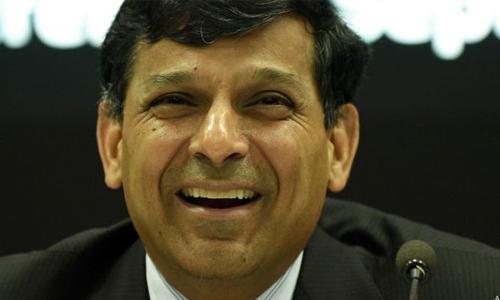RBI's Rajan wants companies to go bankrupt … and that’s good
"We want to bring pure capitalism back, which is a contract is a contract," Raghuram Rajan, governor of the Reserve Bank of India (RBI), told CNBC in an exclusive interview. "That's what we're in the process of doing by giving the banks a few more powers and asking them to enforce their contracts."
Without that, companies don't fear resolution and instead put the squeeze on banks to bail them out, he said.
"Without a bankruptcy code, you basically tell the banks, 'I'm your problem now and tell me what hit are you going to take,'" he said. "It can't be win-win for the entrepreneurs and lose-lose for the banks. It has to change."
The bankruptcy code has been a key reform pursued by Prime Minister Narendra Modi's administration, which swept to power last year promising to change the country's famously inhospitable climate for business.
The changes appear sorely needed. The World Bank's ease of doing business survey, released in October, has ranked India at 130 out of 189 countries. When it comes to the ease of enforcing contracts between two domestic businesses, India takes around 1,420 days and costs nearly 40 percent of the value of the claim to resolve disputes, ranking the country at 178 out of 189 countries, the survey found. That compares with China's 453 days and a cost of around 16 percent of the value of the claim.
When it comes to bankruptcy, India doesn't fare much better. On average, it takes around 4.3 years to resolve a claim, costing around 9 percent of the debtor's estate, with an average recovery rate of 25.70 cents on the dollar, the survey found. India's bankruptcy system ranks at 136 out of 189 countries, well below China's 55.
Rajan expects the bankruptcy reforms will be introduced into the next session of parliament. Proposals include imposing deadlines for the first time.
"In the meantime, we've had to sort of put together a resolution process almost with sticking tape," Rajan said. "That we have now under way and that gives the banks powers to resolve a bad debt situation in a way that puts the asset back on track."
Photo Caption: Raghuram Rajan, governor of the Reserve Bank of India
Related Posts

